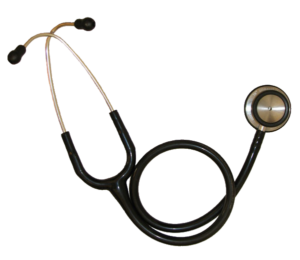 When I was growing up, it was quite fashionable for children to have their tonsils removed. A few sore throats, and BOOM - they were taken out. But what are the long term consequences of having the tonsils or adenoids removed in childhood? Are there any?
When I was growing up, it was quite fashionable for children to have their tonsils removed. A few sore throats, and BOOM - they were taken out. But what are the long term consequences of having the tonsils or adenoids removed in childhood? Are there any?
An interesting large study from Denmark, using Danish public health data, examined this issue and found a higher long-term risk of certain diseases. In those who had either tonsils or adenoids or both removed during childhood (up to the age of 9), years later there were higher rates of respiratory, infectious, and allergic diseases. Tonsil removal (for recurrent sore throats) is a tonsillectomy, adenoid removal (due to frequent middle ear infections) is an adenoidectomy, and removing both at once is a adenotonsillectomy. However, both adenoids and tonsils are parts of the immune system, have roles in pathogen detection and defense, and during childhood the immune system is still developing. From Science Daily:
Tonsil and adenoid removal associated with respiratory, allergic and infectious disease
Removing tonsils and adenoids in childhood increases the long-term risk of respiratory, allergic and infectious diseases, according to researchers who have examined -- for the first time -- the long-term effects of the operations. The researchers suggest renewed evaluation of alternatives to these common paediatric surgeries that include removal of tonsils (tonsillectomy) to treat chronic tonsillitis or adenoids (adenoidectomy) to treat recurrent middle ear infections.
The adenoids and tonsils are strategically positioned in the nose and throat respectively to act as a first line of defense, helping to recognise airborne pathogens like bacteria and viruses, and begin the immune response to clear them from the body.
The collaborative study initiated by the Copenhagen Evolutionary Medicine program looked at the long-term effects of removing the tonsils and adenoids in childhood, compared with children who had not undergone the surgeries.... The team analysed a data set from Denmark of 1,189,061 children born between 1979 and 1999, covering at least the first 10 years and up to 30 years of their life. Of the almost 1.2 million children, 17,460 had adenoidectomies, 11,830 tonsillectomy and 31, 377 had adenotonsillectomies, where both tonsils and adenoids removed. The children were otherwise healthy.
The analysis showed: -Tonsillectomy was associated with an almost tripled relative risk -- the risk for those who had the operation compared with those who didn't -- for diseases of the upper respiratory tract. These included asthma, influenza, pneumonia and chronic obstructive pulmonary disorder or COPD, the umbrella term for diseases such as chronic bronchitis and emphysema. - The absolute risk (which takes into account how common these diseases are in the community) was also substantially increased at 18.61 percent. - Adenoidectomy was found to be linked with a more than doubled relative risk of COPD and a nearly doubled relative risk of upper respiratory tract diseases and conjunctivitis. The absolute risk was also almost doubled for upper respiratory diseases but corresponded to a small increase for COPD, as this is a rarer condition in the community generally.
The team also analysed conditions that these surgeries directly aimed to treat, and found mixed results: - Adenoidectomy was associated with a significantly reduced risk for sleep disorders and all surgeries were associated with significantly reduced risk for tonsillitis and chronic tonsillitis, as these organs were now removed. However, there was no change in abnormal breathing up to the age of 30 for any surgery and no change in sinusitis after tonsillectomy or adenoidectomy.
Following adenotonsillectomy the relative risk for those who had the operation was found to increase four or five-fold for otitis media (inflammation of the middle ear) and sinusitis also showed a significant increase.
The study suggests that shorter-term benefits of these surgeries may not continue up to the age of 30 apart from the reduced risk for tonsillitis (for all surgeries) and sleep disorders (for adenoidectomy). Instead, the longer-term risks for abnormal breathing, sinusitis and otitis media were either significantly higher after surgery or not significantly different.
The researchers note that there will always be a need to remove tonsils and adenoids when those conditions are severe.
